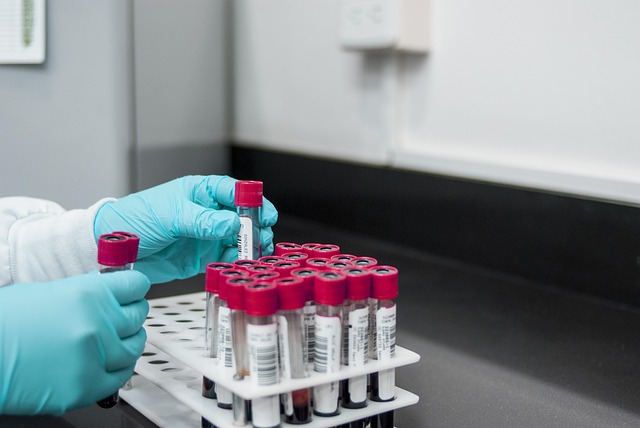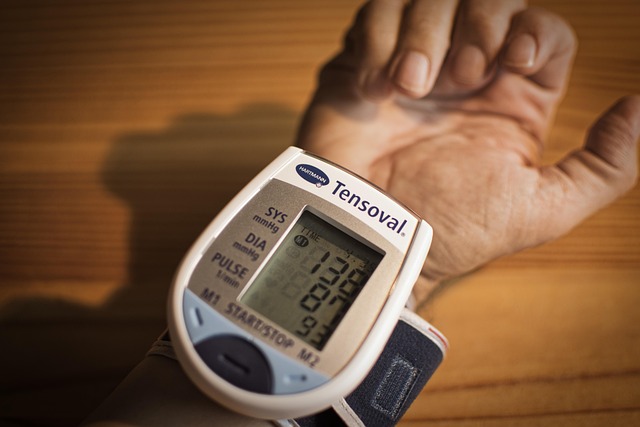Iron deficiency anemia, caused by low iron levels, leads to fatigue and breathlessness. It can result from blood loss, dietary deficiencies, or liver issues like hepatitis. The Advanced Liver Blood Test UK, beyond standard tests, assesses liver health, helping diagnose conditions linked to anemia. Measuring ferritin, red blood cells, and hemoglobin, it combines results with symptoms for accurate diagnosis and treatment.
Iron deficiency anemia, a common blood disorder, can be effectively diagnosed through specialized blood tests. This article guides you through the process, focusing on understanding iron deficiency anemia, its symptoms, and causes. We delve into the Advanced Liver Blood Test UK, explaining what to expect, how to prepare, and interpreting results to identify iron deficiency. By following these steps, individuals can promptly address potential issues and ensure optimal health.
- Understanding Iron Deficiency Anemia: Symptoms & Causes
- Advanced Liver Blood Test UK: What to Expect & Prepare
- Interpreting Results: Identifying Iron Deficiency Through Blood Tests
Understanding Iron Deficiency Anemia: Symptoms & Causes

Iron deficiency anemia, a common blood disorder, occurs when your body lacks enough iron, a crucial component for healthy red blood cells. This condition can lead to fatigue, weakness, and shortness of breath as the body struggles to transport oxygen efficiently. Symptoms may include pale skin, dizziness, headaches, and an increased feeling of hunger.
Causes range from blood loss, common in cases of gastrointestinal disorders or heavy menstrual periods, to poor diet, where inadequate iron intake over time depletes stores. Certain medical conditions, such as inflammatory bowel disease or chronic infections, can also contribute. In the UK, advanced liver blood tests are sometimes used to diagnose underlying liver issues that might be associated with iron deficiency anemia, providing valuable insights for comprehensive treatment and management.
Advanced Liver Blood Test UK: What to Expect & Prepare

An Advanced Liver Blood Test UK is a comprehensive assessment that goes beyond standard liver function tests, providing detailed insights into your liver’s health. This test typically measures various enzymes, proteins, and other markers in your blood to evaluate liver damage or dysfunction. It can detect conditions like hepatitis, cirrhosis, or fatty liver disease, which are significant concerns in the UK due to lifestyle factors and dietary choices.
Preparing for this test involves ensuring you fast for a specified period before the appointment. This usually means abstaining from food but allowing yourself to drink water up until the test. It’s important to discuss any medications or supplements you’re taking with your healthcare provider, as some substances can interfere with test results. On the day of the test, a small sample of your blood will be taken and sent to a laboratory for analysis, offering valuable information about your liver’s current state.
Interpreting Results: Identifying Iron Deficiency Through Blood Tests

Interpreting your blood test results is crucial in identifying iron deficiency anemia. The most common test, a Complete Blood Count (CBC), examines red blood cells and their shape, size, number, and hemoglobin levels. Hemoglobin, found in red blood cells, carries oxygen throughout the body, so its low levels can indicate iron deficiency.
In the UK, an advanced Liver Blood Test may also be used to check for ferritin levels, a protein that stores iron in the body. Low ferritin levels suggest potential iron deficiency. Combining these results with your symptoms can help healthcare professionals make a diagnosis. If you suspect you have iron deficiency anemia, consult a doctor who may recommend further tests or treatment options.
The detection of iron deficiency anemia through blood tests, such as the Advanced Liver Blood Test UK, is a crucial step in managing this common yet serious health condition. By understanding symptoms, causes, and interpreting test results, individuals can take proactive measures to ensure optimal iron levels. Early identification allows for effective treatment options, including dietary adjustments and supplementation, ultimately improving overall well-being.
